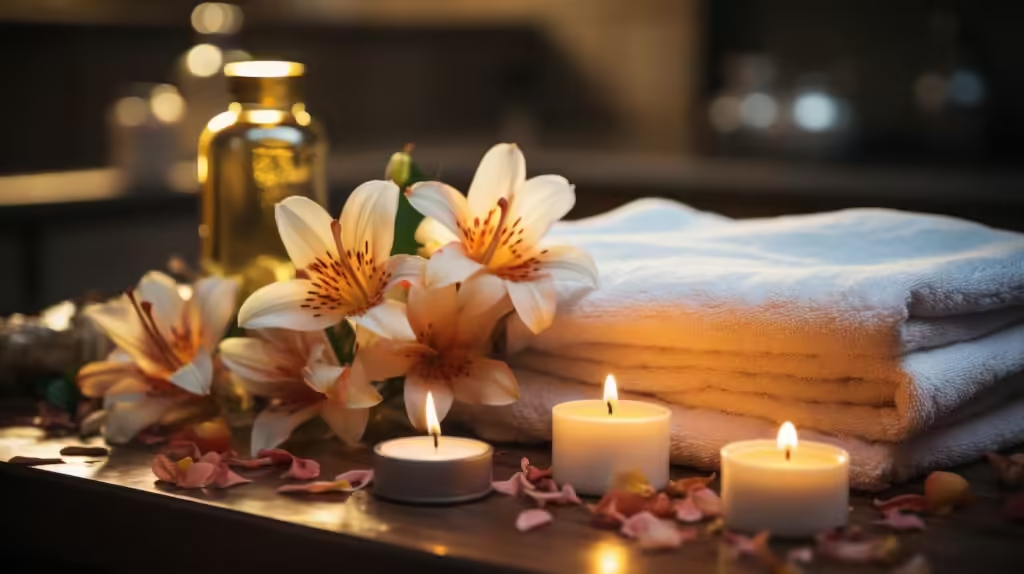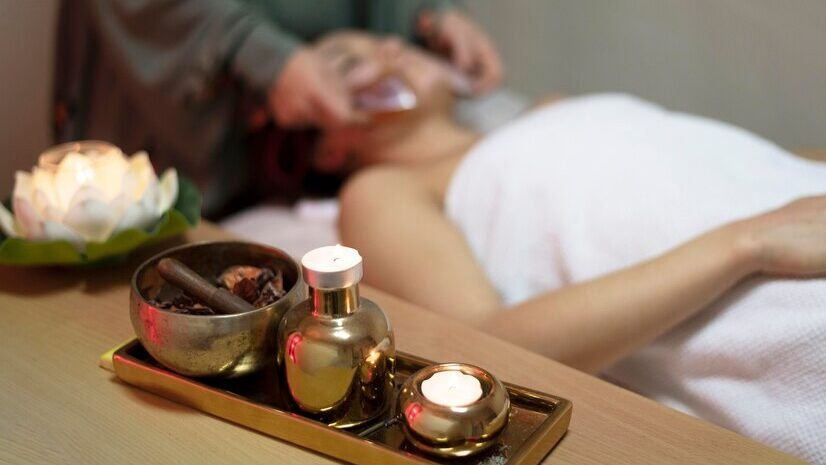
Aromatherapy is the practice of using essential oils for therapeutic benefits. These oils are concentrated extracts from plants, capturing their scents and beneficial properties. The use of essential oils in aromatherapy can enhance physical and mental well-being through various methods, including inhalation, topical application, and diffusion.
Description
Aromatherapy leverages the natural aromatic compounds found in plants to promote health and well-being. Essential oils are extracted from different parts of plants, such as flowers, leaves, bark, and roots, using methods like steam distillation and cold pressing. Each essential oil has unique properties and benefits, making them versatile tools for improving health.
Benefits
1. Stress Reduction:
- Lavender: Known for its calming effects, lavender can reduce stress and anxiety, promoting relaxation and a sense of peace.
- Chamomile: This soothing oil can help alleviate stress and promote calmness.
2. Improved Sleep:
- Lavender: In addition to reducing stress, lavender is also effective in promoting restful sleep.
- Cedarwood: Known for its grounding properties, cedarwood can help improve sleep quality.
3. Enhanced Mood:
- Bergamot: This uplifting oil can improve mood and alleviate symptoms of depression and anxiety.
- Orange: The cheerful scent of orange oil can boost mood and create a positive atmosphere.
4. Increased Focus and Concentration:
- Peppermint: This invigorating oil can enhance mental clarity and concentration.
- Rosemary: Known for its memory-boosting properties, rosemary can improve cognitive function.
5. Pain Relief:
- Eucalyptus: This oil has analgesic and anti-inflammatory properties, making it effective for pain relief.
- Peppermint: The cooling sensation of peppermint oil can help alleviate headaches and muscle pain.
FAQs
Q: What are essential oils?
A: Essential oils are concentrated extracts from plants that capture their scents and beneficial properties. They are used in aromatherapy to promote physical and mental well-being.
Q: How are essential oils extracted?
A: Essential oils are typically extracted through steam distillation or cold pressing. These methods help preserve the natural compounds of the plant.
Q: How do I use essential oils?
A: Essential oils can be used through inhalation (diffusing or direct inhalation), topical application (diluted with a carrier oil), or sometimes ingestion (under professional guidance).
Q: Are essential oils safe for everyone?
A: Essential oils are generally safe when used properly, but some individuals may have sensitivities or allergies. Always perform a patch test and consult with a healthcare provider if you have any concerns.
Q: Can essential oils be ingested?
A: Ingesting essential oils should only be done under the guidance of a qualified healthcare professional, as some oils can be toxic when taken internally.
Q: How should essential oils be stored?
A: Store essential oils in dark glass bottles, away from direct sunlight and heat, to preserve their potency and prevent degradation.
Q: Can essential oils replace medical treatments?
A: Essential oils should not replace prescribed medical treatments but can complement them. Always consult with a healthcare provider for serious health concerns.
Q: What is the best way to start using essential oils?
A: Start with a few basic oils like lavender, peppermint, and eucalyptus. Learn their uses and how to apply them safely before exploring other oils.
Q: How do I dilute essential oils for topical use?
A: Dilute essential oils with a carrier oil (like coconut or jojoba oil) at a ratio of 2-3 drops of essential oil per teaspoon of carrier oil for adults.
Q: Can I use essential oils around pets and children?
A: Some essential oils are safe for pets and children, but always research and consult a professional before use, as some oils can be harmful.
Understanding the basics of aromatherapy and essential oils can help you harness their full potential safely and effectively. Whether you aim to reduce stress, improve sleep, or enhance your mood, essential oils offer a natural and holistic approach to health and well-being.

